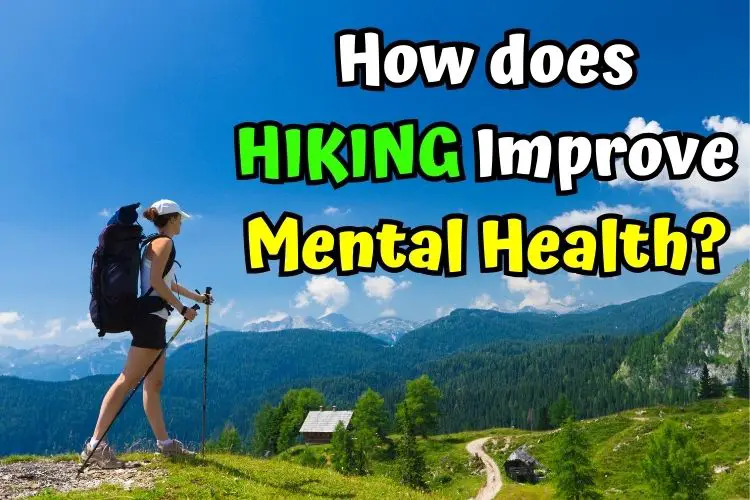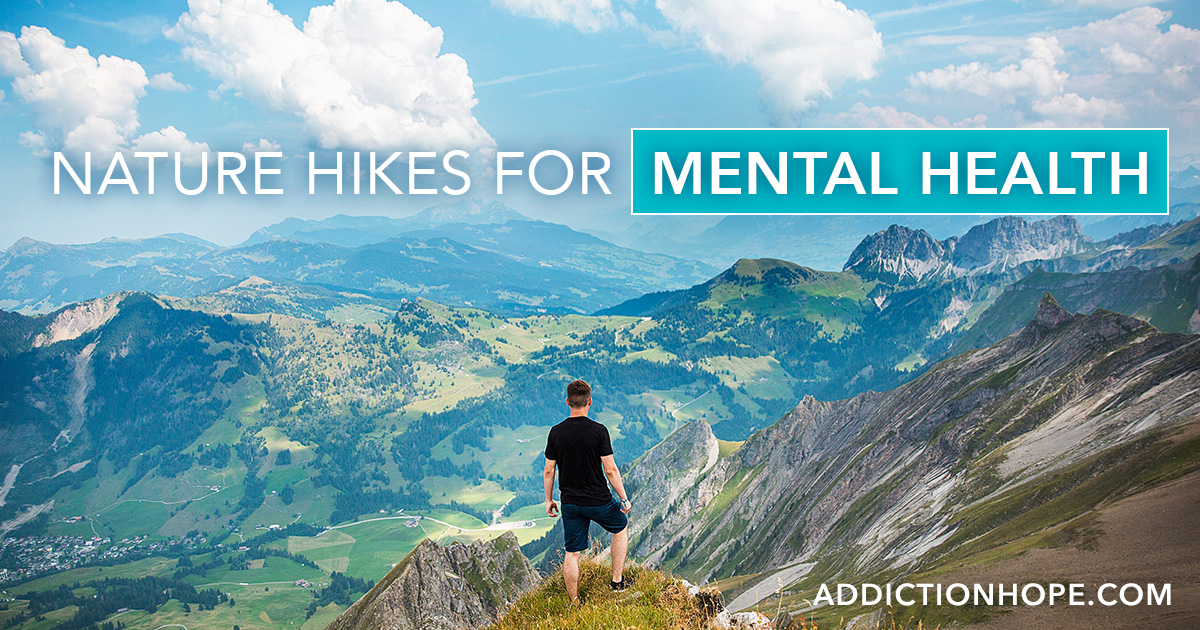Introduction
In an increasingly fast-paced and digital world, mental health has emerged as a significant concern for individuals of all ages. The demands of modern life, coupled with the challenges posed by the COVID-19 pandemic, have intensified the need for effective ways to manage stress, anxiety, and depression. While traditional therapeutic approaches like counseling and medication remain essential, there is a growing recognition of the healing power of nature in promoting mental well-being. This article explores the concept of “Trails Mental Health” and how spending time in natural environments can have a profound positive impact on mental health.

The Nature-Health Connection
Humans have an innate connection with nature that dates back to our earliest ancestors. Over time, our lives have become increasingly urbanized, resulting in a disconnect from the natural world. This detachment has been associated with various mental health issues, including depression, anxiety, and attention disorders. Recent research has illuminated the importance of re-establishing this connection and harnessing the therapeutic potential of nature.
MUST READ=Trails Carolina Horror Stories
MUST READ=Ttm fatafat
Trails Mental Health
“Trails Mental Health” refers to a growing movement that encourages individuals to seek solace and healing through outdoor activities such as hiking, walking, biking, and camping. These activities are typically enjoyed along trails, which offer a structured and accessible way to immerse oneself in nature. Trails Mental Health is not a formal treatment method, but rather a holistic approach that complements traditional therapies.

- Stress Reduction: Spending time in natural settings has been shown to reduce stress levels significantly. Nature’s calming influence can lower cortisol levels, the hormone associated with stress, leading to a more relaxed state of mind. When individuals engage in outdoor activities on trails, they can experience a sense of tranquility and escape from the pressures of daily life.
- Enhanced Mood: Exposure to natural environments can boost mood and alleviate symptoms of depression and anxiety. The sights, sounds, and smells of nature stimulate the production of neurotransmitters like serotonin, often referred to as the “feel-good” hormone. This can lead to an improved overall sense of well-being and happiness.
- Improved Cognitive Function: Nature has a rejuvenating effect on cognitive function. Research has shown that spending time in natural settings can enhance creativity, problem-solving abilities, and attention span. For individuals struggling with mental health challenges, these cognitive improvements can be invaluable in their daily lives.
- Social Connection: Trails often provide opportunities for social interaction, whether it’s through group hikes, community events, or shared outdoor experiences. Social connectedness is a crucial aspect of mental well-being, as it reduces feelings of isolation and loneliness, which can exacerbate mental health issues.
- Physical Health Benefits: Engaging in physical activities on trails can lead to improved physical health, which in turn has a positive impact on mental health. Regular exercise releases endorphins, which are natural mood elevators. Additionally, physical health improvements can boost self-esteem and self-confidence.
Prescription for Nature
Just as doctors prescribe medications and therapists recommend counseling, healthcare providers are increasingly “prescribing” nature as a complementary approach to improving mental health. This concept, known as “ecotherapy” or “nature-based therapy,” involves healthcare professionals encouraging patients to spend time in natural settings as part of their treatment plans. This approach acknowledges that well-being is a holistic concept encompassing both physical and mental health.

Nature-Based Interventions
Several nature-based interventions have gained prominence within the Trails Mental Health movement:
- Ecotherapy: Ecotherapy involves guided outdoor activities conducted by trained therapists. These sessions can include mindfulness exercises, group discussions, and other therapeutic techniques in natural settings. Ecotherapy sessions aim to promote self-awareness, reduce stress, and build resilience.
- Forest Bathing: Originating in Japan, forest bathing, or shinrin-yoku, involves immersing oneself in a forest environment and mindfully engaging with nature through the senses. This practice has been shown to reduce stress, lower blood pressure, and enhance mood.
- Adventure Therapy: Adventure therapy combines outdoor activities with therapeutic interventions. Activities like rock climbing, canoeing, and wilderness backpacking challenge individuals both physically and mentally, fostering personal growth and emotional healing.
- Nature Walks: Simple activities like walking in a park or along a nature trail can provide immediate mental health benefits. These walks allow individuals to clear their minds, connect with nature, and find solace in the present moment.
Overcoming Barriers to Trails Mental Health
While Trails Mental Health offers numerous benefits, there are some challenges and barriers that individuals may face when attempting to incorporate nature into their mental health regimen:
- Accessibility: Not everyone has easy access to natural environments or trails. Urban dwellers or individuals with mobility issues may find it challenging to engage in nature-based activities.
- Time Constraints: Modern lifestyles can be demanding, leaving little time for outdoor pursuits. Balancing work, family, and other commitments can make it difficult to prioritize Trails Mental Health.
- Safety Concerns: Some individuals may have concerns about safety in natural settings, especially when venturing into remote areas or unfamiliar terrain.
- Knowledge and Skills: Engaging with nature effectively often requires knowledge and skills related to outdoor activities. Without proper guidance and education, individuals may feel ill-equipped to embark on Trails Mental Health experiences.
Conclusion
In the pursuit of improved mental health and well-being, it is crucial to explore a diverse range of approaches. Trails Mental Health, with its emphasis on reconnecting with nature, offers a promising avenue for promoting mental well-being. Nature has the power to reduce stress, enhance mood, improve cognitive function, foster social connections, and boost physical health. As healthcare providers increasingly recognize the importance of nature-based interventions, more individuals are receiving prescriptions for time spent outdoors.
While challenges such as accessibility and time constraints persist, efforts are being made to make Trails Mental Health more inclusive and accessible to all. By embracing the healing potential of nature and integrating it into our lives, we can take meaningful steps toward a mentally healthier and more balanced future. Whether through a leisurely walk in the park or an adventurous hike in the wilderness, the trails to mental health are waiting to be explored, offering solace, healing, and rejuvenation to those who seek them.
